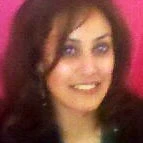
Photo: Arne Hoel l World Bank
Although Morocco contrasts with its wealthier Maghreb neighbors (Algeria, Tunisia, and Libya) as the only lower middle-income country, its number and diversity of cities invite a range of urban planning debates--from managing green spaces to increasing access to energy and water. Organizers of the #ISSC2014 pieced together a working definition of a “smart city” by covering four themes: 1) Urbanization, 2) Digital Inclusion, 3) Governance, and 4) Mobility.
One of the key questions tackled at the conference, especially apt for the local context, was: How does one promote a rural “smartcity” development while respecting its local culture? Or more aptly stated by Louis Zacharilla, Co-Founder of the Intelligent Community Forum: “be more of who you are, and continue to overlay with modern tools and technology...”Maghreb cities should not try to become the next Silicon Valley, he continued, because Silicon Valley developed out of an organic process not by fiat. Moreover, each geographical area has its own distinct qualities. Maghreb cities possess their own distinct richness, which cannot be reproduced in Europe or China or the Gulf countries. For example, promoting solar energy is not as viable an option for China due to its smog challenge. The Maghreb does not have this challenge--yet.
ICF defines a smart city as demonstrating the following:
- Guaranteeing connectivity: the Internet is a utility -- not just a technology, it is as vital to social inclusion and productivity as electricity;
- Eliminating its “Middle of Nowhere” status; and
- Using knowledge, research, creativity & collaboration as tools for economic development.
Applying more technology tools, alone, does not immediately qualify a city to be “smarter”. According to Carlo Ratti, Director of the Sensable City Laboratory at the Massachusetts Institute of Technology, ‘smart city’ design responds to citizen behavior. The most beautiful challenge is to take a city and improve upon it rather than starting from scratch, explained Ratti. In Maghreb country cases, ‘smart city’ design should respond to water resource challenges in a coordinated fashion to remain sustainable. For example, Morocco may consider a version of the Digital Water Pavilion, which brings water into the multi-functional, public space while educating citizens about water use.
Alternatively, another definition of “smart city” focuses on increasing instrumentation, like installing elevators en masse, as well as increasing interconnection, says Jean-François Barsoum, a Senior Consultant at IBM. Increased interconnection means making effective use of real-time data to make informed decisions on range of urban issues, such as traffic, crisis management and safety regulation. Capturing water data may help prepare for the next 10 years regarding water needs and avoid digging unnecessarily. Big data combined with sensory technology would also rationalize food production and planning, added Barsoum. In a smarter city, city management officials would use sensors to optimize and irrigate crops.
In Morocco’s case, Mohamed Attahri, believes that Casablanca’s traffic problems hold it back from operating as a smarter city. In the last 12 years, Morocco has seen a 55 percent increase in vehicles on the road--a problem that Casablanca needs to address whether it ops for the ‘Smart City’ path or not. Attahri argued that a one percent efficiency gain in Morocco traffic could result in over $550 million in savings. He developed the tool ‘Greendizer’ to map traffic problems in Casablanca, but its future application depends on how quickly the technology is adopted locally. Given the adoption curve of the mobile phone, one can be optimistic.
Not all attendees shared the enthusiasm for smart cities. Many saw them as nothing other than techno -utopias for those that could afford to live in such environments. As a few participants countered, a “smart city” needs more educated citizens without widening the rural-urban divide. Moreover, even if a “smart city” requires more than technology investment, how will urban planners avoid widening the digital-divide that tends to favor more urban environments? A “smarter city” requires broadband, a knowledge workforce collaborating with a university, innovation, and digital inclusion.
In closing, the Intelligent Community Forum offered Morocco an invitation to nominate a smart city site to join the 21 smart cities by 2017. It will be interesting to see whether Morocco selects a mid-sized town, metropolis, or invests additional resources into creating a new site, like Masdar City in the UAE. Whichever site is selected for a North Africa “smart city”, hopefully a local university will participate as a key stakeholder.


Join the Conversation